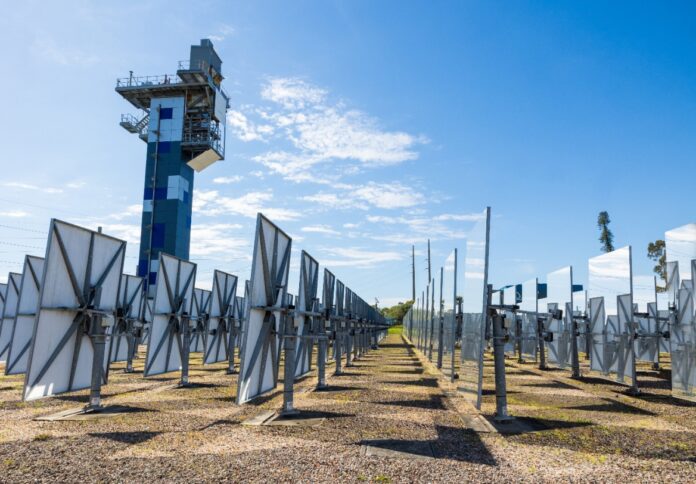
FPR Energy, a new venture established by CSIRO, Australia’s national science agency, has raised $15 million in seed funding to advance next-generation solar thermal technology.
This funding aims to support the company’s efforts to reduce industrial emissions, which contribute to 20 per cent of Australia’s annual carbon footprint, the agency said in a news release.
Launched in collaboration with global advisory and funds management firm RFC Ambrian and utilities leader Osaka Gas, FPR Energy secured the largest seed funding for any CSIRO co-founded venture to date.
The venture focuses on developing concentrated solar thermal (CST) technology to address emissions in heavy industries, including mineral refining, steel production, cement manufacturing, and chemical processing.
The CST technology, developed by CSIRO, is capable of reaching temperatures of up to 1200 degrees Celsius, the agency reported.
Using low-cost ceramic particles to store sunlight as heat, the technology offers long-duration energy storage. This breakthrough enables industrial processes, green fuel production, and reliable, dispatchable power – key elements in achieving decarbonisation goals.
CSIRO Energy Technologies Research Director, Dr Daniel Roberts, highlighted the significance of FPR Energy in meeting the growing demand for renewable solutions in hard-to-abate industries.
“FPR Energy is building on years of solar thermal research, demonstrating CSIRO’s commitment to emissions reduction through impactful science and technology,” Dr Roberts said.
“Diversifying the way we harness Australia’s abundant solar resources will help develop a low-carbon economy and support economic growth and job creation in the Hunter region.”
The venture plans to develop a 50-megawatt thermal demonstration plant, featuring up to 16 hours of integrated thermal energy storage.
The project is designed to demonstrate the commercial viability of the CST technology at a utility scale.
Osaka Gas, a leading Japanese utility operating in Australia, brings extensive expertise to the venture, advancing CST technology for the Australian resources sector.
Hiroki Tanaka, Head of the Next Generation Business Development Department at Osaka Gas, expressed excitement about the collaboration, noting the potential of CST technology to address both emissions reduction and energy affordability challenges faced by industrial users.
“Emission reduction and affordability of energy are often a dilemma for many industrial energy users,” Mr. Tanaka said. “This particle-based CST technology, combined with thermal energy storage, can provide practical solutions.”
Rob Adamson, Chair of RFC Ambrian, emphasized the importance of decarbonising high-temperature industrial processes.
“The decarbonisation of high-temperature industrial processes is crucial, and particle-based CST technology stands out as a high promising solution, offering both high-temperature heat and long-duration storage at competitive costs,” Adamson said.
He added, “FPR Energy’s technology embodies Australian innovation in solar technology and is designed for scalable, local manufacturing.”



















